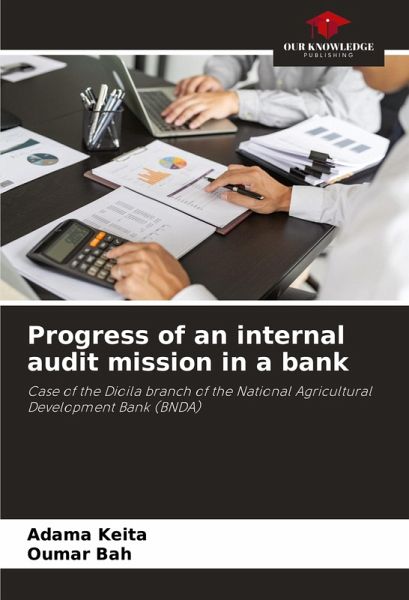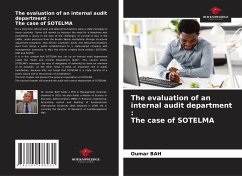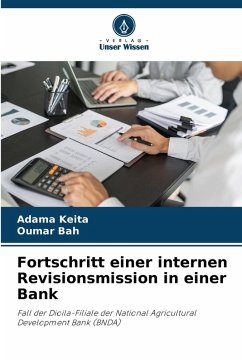
Progress of an internal audit mission in a bank
Case of the Dioila branch of the National Agricultural Development Bank (BNDA)
Versandkostenfrei!
Versandfertig in 6-10 Tagen
40,99 €
inkl. MwSt.

PAYBACK Punkte
20 °P sammeln!
One of the essential conditions for the survival of a company, or more generally an organization, is the ability of its members to act coherently and efficiently to achieve the objectives pursued by the organization.In an increasingly turbulent and ever-changing environment, with the rapid development of new technologies, globalization, increasingly demanding customers, growing uncertainties and risks, ethical issues, and many other factors, managers have a growing need for an effective internal control system that enables them to manage their businesses more effectively, and provides them wit...
One of the essential conditions for the survival of a company, or more generally an organization, is the ability of its members to act coherently and efficiently to achieve the objectives pursued by the organization.In an increasingly turbulent and ever-changing environment, with the rapid development of new technologies, globalization, increasingly demanding customers, growing uncertainties and risks, ethical issues, and many other factors, managers have a growing need for an effective internal control system that enables them to manage their businesses more effectively, and provides them with reasonable assurance that objectives are being achieved.In this respect, the internal audit function, which is a tool for steering the internal control system, provides reasonable assurance that the operations carried out and the decisions taken are "under control", and that they therefore contribute to achieving the company's objectives, based on the procedures, laws and rules of the profession.














